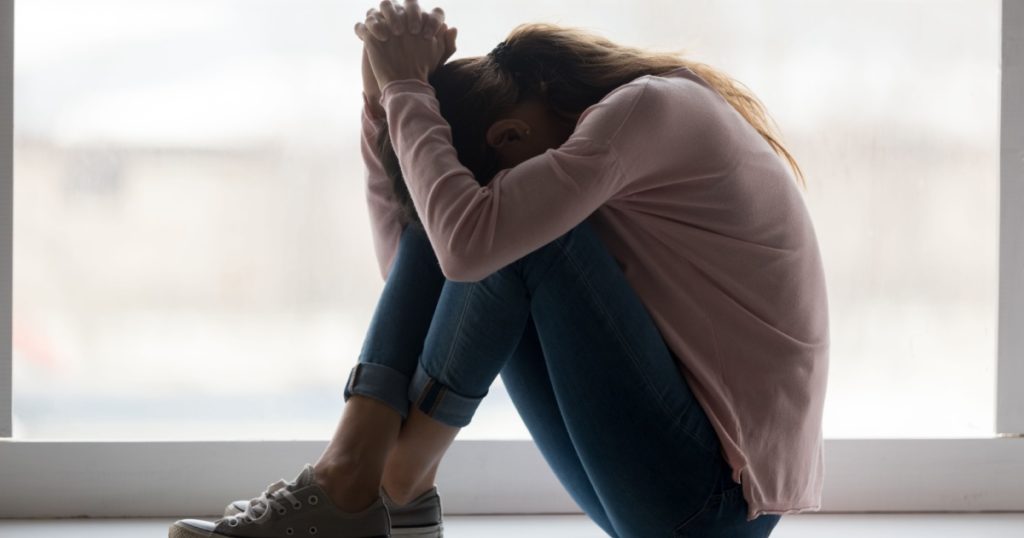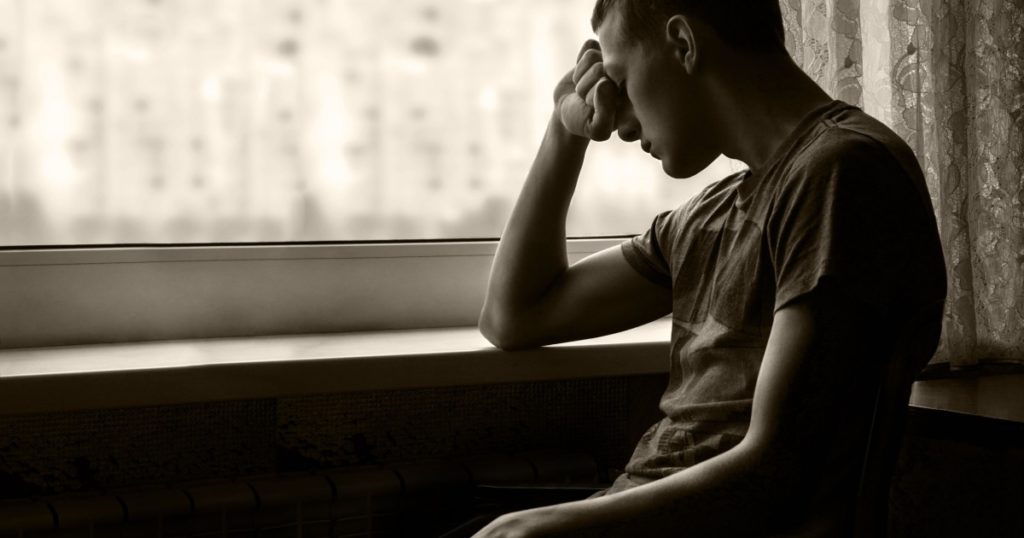Feeling sad is a normal human emotion that everyone experiences at some point in their lives. It may be triggered by a specific event or situation and usually passes with time. On the other hand, depression is a serious mental health condition that can affect how a person thinks, feels, and behaves. It is more than just feeling sad or upset for a few days – it is a persistent feeling of helplessness, hopelessness, and worthlessness that can interfere with daily life activities. Unfortunately, it is not only adults who suffer from depression, but children and teenagers, too. Teens, in particular, are quite susceptible, with depression rates in this age group climbing steadily. The good news is that you can help, so long as you recognize the signs.
Prevalence of Depression in Teens in the United States

Depression is a common mental health issue among teenagers in the United States. According to the National Institute of Mental Health, approximately 5 million adolescents aged 12 to 17 in the U.S. had at least one major depressive episode in 2021, up from 3.2 million in 2019. This makes up around 20.1% of the teenage population. They also found that the prevalence of depression was higher in teenage girls than teenage boys. Recognizing the signs of depression in teens is crucial in order to provide them with the support and help they need. (1)
Read More: Husband speaks out about postpartum depression after wife dies by suicide.
The 12 Signs of Depression in Teens

Our teenagers are living in a world that is more complicated than ever. The internet and social media can have a profound effect on their still-developing brains. This can be in the form of pressure to act a certain way or look as “perfect” as the influencers they follow on TikTok and Instagram do. On top of that, they have far more access to world news, which can be very overwhelming for someone of that age. They are dealing with the climate crisis, wars, and the constant comparison between themselves and people they see online. Online bullying is an increasing problem, and they are juggling all of that along with the same things we were at that age: Grades, sports, music, part-time jobs, friends, family, and more.
As a parent, it can be hard to distinguish between regular teen behavior and depression

Teens typically undergo a lot of change and transformation during adolescence. Their hobbies and interests might change, they will likely distance themselves from their parents in favor of their friends, and maybe even rebel in a way they never had before. While all of this is normal, some signs can signal that the changes are more than just regular teenage assertions of independence. These are 12 of the signs to watch out for that might signal your teenager is battling with depression. (2)
1. Persistent Sadness

Teens with depression may exhibit persistent feelings of sadness, emptiness, or hopelessness that last for weeks or even months. This is more than just being moody. Rather, this is a change from a happy-go-lucky kid to a very glum, low-energy, sad teenager. A mood change this drastic and persistent should not go overlooked.
2. Loss of Interest

They may lose interest in activities they once enjoyed and have a lack of motivation. Maybe your child used to love playing the piano, drawing, or playing basketball in the driveway. Now, they can’t be tempted to do those things no matter how hard you try or what you offer as an incentive. While it is normal for teens to develop new hobbies and interests as they grow older, a complete lack of motivation to do the things they once loved is not a good sign.
3. Changes in Appetite or Weight

Depressed teens may experience significant weight loss or gain, as well as changes in their eating habits. This is because they could be eating less, avoiding eating altogether, or binge-eating while you are not around to monitor them. Even if your child was “overweight” before, has lost weight, and now looks “healthier,” don’t take this as a positive sign. This could be a sign of various mental health disorders, including depression.
Read More: Dad’s heartbreaking post after losing partner to postnatal depression: “Seek help early on”
4. Sleep Disturbances

It is normal for teens to express their free will or independence by staying up late. Insomnia, excessive sleeping, or other sleep disturbances, however, are common symptoms of depression in teens. If your teen is constantly exhausted or complains of sleep difficulties, depression could be at play.
5. Irritability or Anger

We often associate mood swings with teenagers. This includes our teens expressing their embarrassment of their parents or how their younger siblings bother them. Teens with depression, however, may exhibit increased irritability, mood swings, or angry outbursts. These should not be fluffed off as just part of being a teenager, particularly if they are becoming constant and chronic.
6. Fatigue or Loss of Energy

They may feel constantly tired or lack the energy to engage in daily activities. This could be due to experiencing insomnia; however, lethargy is also a common sign of depression regardless of how well the person sleeps at night.
7. Difficulty Concentrating

Depression can affect a teen’s ability to concentrate, make decisions, or remember things. You may notice this when you are trying to interact with them or asking them to complete household chores. Where you also are likely to notice this one is in your child’s grades at school. Depression can cause even the brightest of star students to falter.
Read More: 15-year-old dies by suicide 2 days after telling his mom he was being bullied at school
8. Physical Aches and Pains

Though depression is a mental and emotional illness, it certainly can manifest itself in a very physical manner. Teens with depression may complain of physical ailments such as headaches, stomachaches, or muscle aches.
9. Feelings of Guilt or Worthlessness

They may have a persistent sense of guilt, worthlessness, or self-blame. This sign can be hard to spot, as teenagers often change their closest confidants from their parents to their friends during these years. Doing your best to have open dialogue with your teenager and making sure they know that you are a safe, judgment-free space for them can help you to spot this sign early.
10. Social Withdrawal

Depressed teens may isolate themselves from friends and family and avoid social activities. Where they used to be a social butterfly, loved going to soccer practice, or preferred to hang out in the common space of the home, they will instead shut themselves in their room.
Read More: Mom’s Tandem Breastfeeding Photos are Inspiring Thousands
11. Reckless Behavior

It is common for teenagers, especially boys, to engage in “risky behavior” – any parents of boys knows what we’re talking about here. Engaging in certain risky behaviors, however, such as substance abuse, reckless driving, or self-harm can be a sign of underlying depression.
12. Suicidal Thoughts or Behaviors

Teens with depression may have thoughts of suicide or engage in self-harming behaviors. This is another case of something that your teen is likely not telling you or trying to hide from you. Your best option is to watch for some of the other signs on this list and then have a conversation with your child.
What to Do If You Think Your Child/Teenager Has Depression

- Talk to Your Teen: Encourage open communication and let them know you are there to listen without judgment. Remember, creating that safe space takes time and patience – your teen may take time to open up to you. Don’t rush them or pressure them, just be the listening ear that they need you to be.
- Consult a Mental Health Professional: Seek guidance from a therapist, counselor, or psychiatrist who can provide a proper diagnosis and treatment plan.
- Support Them: Offer emotional support and reassurance, and help them access resources for treatment, such as therapy or medication.
- Create a Safe Environment: Ensure your home is a safe and supportive space where your teen feels comfortable expressing their thoughts and feelings.
- Encourage Healthy Habits: Promote regular exercise, a balanced diet, and adequate sleep to improve overall well-being.
The Bottom Line

Recognizing the signs of depression in teens is crucial to providing them with the necessary support and intervention. By understanding the difference between feeling sad and experiencing depression, parents and caregivers can help their teenagers navigate through these challenging times. Remember that seeking professional help and offering unconditional support are key steps toward helping a teenager struggling with depression find healing and recovery
Read More: 5 Rules That Mayim Bialik Has for Her Children That Could Reshape Parenting
Sources
- “Major Depression.” NIMH
- “Parent’s Guide to Teen Depression.” Help Guide. Melinda Smith, M.A., Lawrence Robinson, Jeanne Segal, Ph.D. and Sheldon Reid
- “Depression in Teens: How Parents Can Help.” Kids Health

